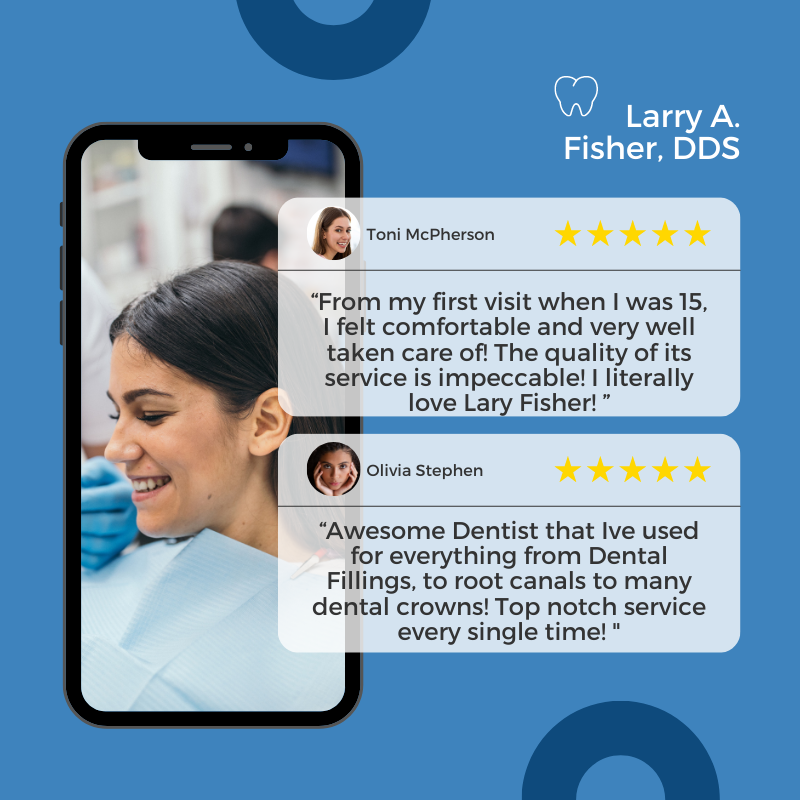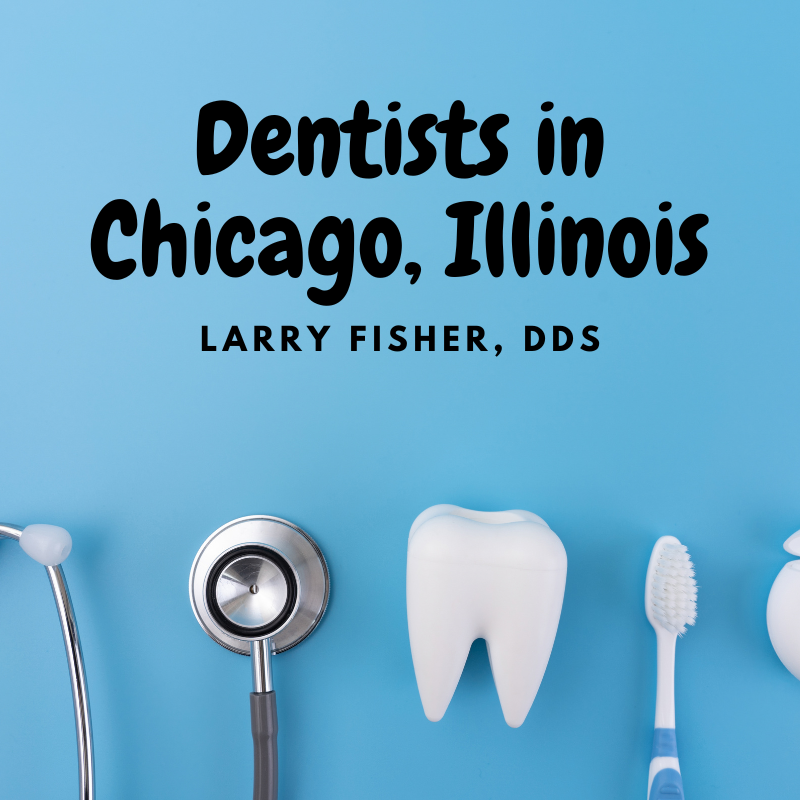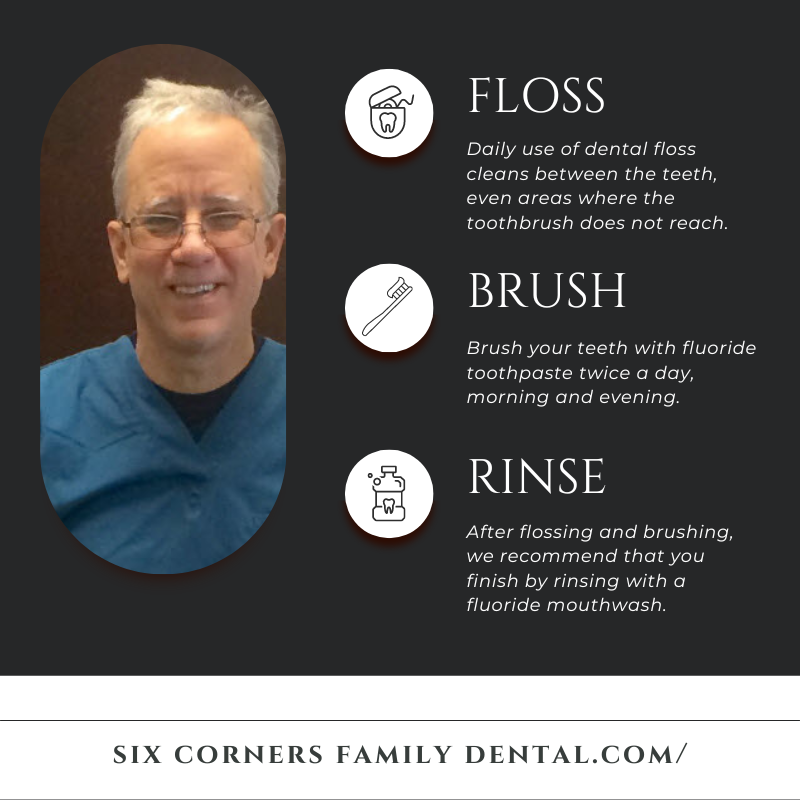Chicago Dental Tips – Common Dental Problems
Do you ever experience tooth pain or discomfort? Are you unsure of how to maintain good oral health? If so, you’re not alone. Many people face common dental problems that can impact their daily lives. However, there are preventative measures you can take to achieve and maintain a healthy smile.
In this article, we will explore the most common dental problems and provide tips for maintaining good oral health. From dental cavities and gum disease to tooth sensitivity and bad breath, we’ll cover various dental issues and offer solutions for prevention and treatment. By following our recommendations, you can keep your teeth and gums healthy and your smile shining bright.
Key Takeaways:
- Most common dental problems affect people’s daily lives.
- There are preventative measures to achieve and maintain a healthy smile.
- Dental cavities, gum disease, tooth sensitivity, bad breath, tooth discoloration, missing teeth, jaw disorders, and oral cancer are among common dental problems.
Dental Cavities: Causes, Prevention, and Treatment
Dental cavities, also known as tooth decay, are a common dental issue that can cause discomfort and affect your oral health. Cavities occur when bacteria in your mouth produce acid that can erode your tooth enamel over time, leading to holes or “cavities” in your teeth.
To prevent cavities, it’s important to maintain proper dental hygiene habits, such as brushing your teeth twice a day, flossing daily, and using mouthwash. It’s also essential to attend regular dental check-ups to catch cavities early and receive treatment before they worsen.
| Preventive Measures | Treatment Options |
|---|---|
| Brushing your teeth twice a day | Dental fillings to restore decayed teeth |
| Flossing daily | Crowns for severely decayed teeth |
| Using mouthwash | Root canals for infected teeth |
| Reducing sugar intake | Extraction for severely damaged teeth |
If you experience tooth pain or sensitivity, it’s essential to see a dentist as soon as possible, as these may be signs of a cavity. Your dentist can provide treatment options to restore your tooth, such as dental fillings, crowns, root canals, or extractions for severely damaged teeth.
Overall, maintaining good dental hygiene and attending regular dental check-ups can help prevent cavities and ensure your teeth stay healthy and strong for years to come.
Gum Disease: Symptoms, Prevention, and Treatment
Did you know that gum disease affects approximately half of all adults in the United States? While it may start as simple gum inflammation, it can lead to more serious conditions such as periodontitis and tooth loss. Understanding the symptoms, causes, and preventative measures of gum disease is crucial to maintaining good oral health.
What is Gum Disease?
Gum disease, also referred to as gingivitis or periodontitis, is a bacterial infection that affects the gums and the tissues supporting the teeth. It is caused by the buildup of plaque and tartar on the teeth and gums, which can lead to inflammation and damage to the gum tissue.
Symptoms of Gum Disease
The symptoms of gum disease can vary, but may include:
- Bleeding gums during brushing or flossing
- Swollen or red gums
- Bad breath or a bad taste in your mouth
- Gums that are receding or pulling away from the teeth
- Pus or other signs of infection around the teeth and gums
If you are experiencing any of these symptoms, it is important to visit your dentist as soon as possible for a proper diagnosis and treatment plan.
Preventing Gum Disease
Preventing gum disease is possible with good oral hygiene habits. This includes:
- Brushing your teeth at least twice a day with a fluoride toothpaste
- Flossing daily to remove plaque and food particles from between your teeth
- Using an antibacterial mouthwash to kill bacteria and freshen breath
- Eating a balanced diet rich in fruits and vegetables
- Quitting smoking or using tobacco products
Treatment for Gum Disease
If gum disease is detected in its early stages, it can be treated with professional cleaning and improved oral hygiene habits. More advanced cases may require scaling and root planing, a deep cleaning procedure that removes plaque and tartar from below the gum line. In severe cases, surgery may be necessary to repair damaged tissue or replace missing teeth.
“Don’t ignore the signs of gum disease. Early detection and prevention can save your teeth and improve your overall oral health.”
– Your Dentist
Regular dental check-ups are key to maintaining good oral health and preventing gum disease. Be sure to schedule appointments with your dentist every six months to ensure that your teeth and gums are in good condition. By following these preventative measures and taking care of your oral health, you can keep your gums healthy and maintain a confident smile.

Tooth Sensitivity: Causes and Solutions
Do you feel discomfort or pain when consuming hot, cold, or sweet foods and drinks? This may be a sign of tooth sensitivity, a common dental problem affecting many Americans. The good news is that there are ways to manage and reduce the sensitivity of your teeth. Let’s explore the causes of tooth sensitivity and some solutions to alleviate the discomfort.
Causes of Tooth Sensitivity
Tooth sensitivity can be caused by various factors, including:
- Enamel erosion due to acidic foods and drinks or brushing too hard
- Gum recession, exposing the sensitive root area
- Dental procedures such as teeth whitening or dental fillings
- Cracked or chipped teeth
- Bite problems or teeth grinding
Solutions for Tooth Sensitivity
If you are experiencing tooth sensitivity, there are several solutions you can try:
- Use toothpaste for sensitive teeth: Choose a toothpaste specifically formulated for sensitive teeth, which can help alleviate discomfort and protect against further sensitivity.
- Improve your brushing technique: Make sure you brush your teeth gently and use a soft-bristled brush to avoid further enamel erosion.
- Use a fluoride rinse: Fluoride rinses help to strengthen the enamel and reduce tooth sensitivity.
- Avoid acidic foods and drinks: Limit your intake of acidic foods and drinks, such as citrus fruits, soda, and coffee, which can erode enamel over time.
- Wear a nightguard: If you grind your teeth at night, wearing a nightguard can protect your teeth from further damage and reduce sensitivity.
If your tooth sensitivity is severe or persistent, it is important to see your dentist. They can determine the cause of your sensitivity and recommend further solutions, such as a dental bonding treatment or gum grafting.
Remember, tooth sensitivity is a common dental problem, but it can be managed with proper dental care and treatment. Don’t hesitate to speak to your dentist if you are experiencing frequent or severe tooth sensitivity.
Bad Breath: Causes and Remedies
Bad breath can be a social nightmare, and it’s a common dental problem that affects many individuals. The most common cause of bad breath is poor oral hygiene. However, other factors may contribute to halitosis, such as dental or gum disease, tobacco use, dry mouth, certain medications, and even certain foods.
If you’re looking for remedies for bad breath, improving your oral hygiene is the best place to start. Brush your teeth and tongue twice a day with toothpaste that contains fluoride. Floss daily to remove food particles and plaque that your toothbrush can’t reach. Don’t forget to brush your gums gently.
Another remedy is tongue scraping. Use a tongue scraper to remove bacteria and food particles that are stuck on your tongue. Mouthwash can also help. Choose an antiseptic mouthwash that can kill the bacteria that cause bad breath.
If your bad breath persists, it may be a sign of an underlying dental or gum disease. In this case, make sure to schedule a dental check-up to identify any potential issues. Your dentist may recommend deep cleaning or other treatments to correct the problem and improve your oral health.
Tooth Discoloration: Types, Causes, and Treatments
Having discolored teeth can be a source of embarrassment and can negatively impact your self-confidence. However, there are various reasons why your teeth may become discolored, including intrinsic and extrinsic stains.
Types of Tooth Discoloration
| Type | Causes |
|---|---|
| Intrinsic | Discoloration from within the tooth, such as due to medication, genetics, or excessive fluoride intake during tooth development. |
| Extrinsic | Discoloration on the surface of the tooth caused by external factors such as smoking, dark-colored beverages like coffee and tea, and poor dental hygiene habits. |
| Age-related | Discoloration caused by the natural aging process as tooth enamel gets thinner and dentin yellows over time. |
Treatment Options
The treatment for tooth discoloration depends on the type and severity of the discoloration. Here are some common treatment options:
- Teeth whitening: This is a popular method to remove extrinsic stains and lighten teeth that have yellowed with age. Whitening can be done with in-office treatments, at-home kits or over-the-counter products.
- Dental veneers: Veneers are thin layers of porcelain or composite resin that are placed over the front surfaces of teeth to improve their appearance. Veneers can cover intrinsic and extrinsic stains but require more extensive preparation of the natural tooth structure.
- Composite bonding: This technique uses a tooth-colored material applied to the tooth surface to mask discoloration and improve the appearance of misshapen or chipped teeth.
It’s important to note that these treatments require good oral hygiene habits to maintain their effects. Regular brushing, flossing, and dental visits can help prevent further discoloration and keep your smile bright and healthy.
Missing Teeth: Impact and Replacement Options
If you’ve lost one or more teeth, you’re not alone. Millions of Americans experience tooth loss due to injury, decay, or periodontal disease. But missing teeth can have serious consequences for your oral health and self-confidence. Here’s what you need to know about the impact of missing teeth and the replacement options available.
Consequences of Tooth Loss
Losing a tooth can affect the alignment of your remaining teeth, making them shift and potentially causing bite problems. It can also lead to bone loss in the jaw, which can change the shape of your face and make it harder to eat and speak. In addition, missing teeth can cause self-esteem issues and impact your social life.
Replacement Options
Fortunately, there are several options available to replace missing teeth.
| Dental Implants | Dental implants involve placing an artificial tooth root into the jawbone and attaching a replacement tooth. They are a popular choice because they look and function like natural teeth and can last a lifetime with proper care. |
|---|---|
| Dentures | Dentures are removable prosthetic teeth that can replace several or all missing teeth. They are a more affordable option and can be taken out for cleaning or sleeping. |
| Dental Bridges | Dental bridges use existing teeth to fill in the gap left by a missing tooth. They are fixed in place and can be made from a variety of materials, including porcelain and metal. |
Your dentist can help you decide which replacement option is best for your unique situation.
Jaw Disorders: TMJ and Bruxism
If you experience jaw pain or discomfort, you may have a jaw disorder like TMJ or bruxism. Temporomandibular joint disorder (TMJ) affects the jaw joint and muscles, causing pain and restricted movement. Bruxism is a condition where you unconsciously clench or grind your teeth, often during sleep, which can wear down your teeth and cause pain in the jaw.
If you suspect you have a jaw disorder, it’s important to see your dentist. They can evaluate your symptoms and recommend appropriate treatment options.
“If you suspect you have a jaw disorder, it’s important to see your dentist.”
For TMJ, treatment may include exercises to strengthen and stretch the jaw muscles, medication to relieve pain and inflammation, or a mouthguard to prevent teeth grinding. For bruxism, your dentist may suggest a mouthguard or a splint to prevent wear and tear on your teeth.
In addition to these treatments, there are other steps you can take to alleviate jaw pain. These include practicing relaxation techniques, such as yoga or meditation, and avoiding hard, crunchy, or chewy foods that can exacerbate symptoms.
Remember, if you experience jaw pain or discomfort, don’t ignore it. Talk to your dentist about your symptoms and get the help you need to maintain a healthy, pain-free smile.
Oral Cancer: Early Detection and Prevention
Oral cancer is a serious dental disease that affects thousands of Americans each year. The earlier it’s detected, the more successful treatment can be. Here are some tips to help you prevent and detect oral cancer:
- Avoid using tobacco products, including smoking and chewing tobacco. Tobacco use is one of the leading causes of oral cancer.
- Limit your alcohol consumption. Heavy alcohol use can increase your risk of developing oral cancer.
- Protect your lips from the sun by wearing a lip balm with SPF.
- Practice good oral hygiene by brushing and flossing daily and attending regular dental check-ups. Your dentist can screen for oral cancer during these visits.
- Be aware of any changes in your mouth, including unusual lumps, bumps, or sores that persist for more than two weeks.
- Get regular screenings for oral cancer, especially if you have a history of tobacco or alcohol use or if you are over the age of 40.
If you notice any of these symptoms or are concerned about your risk of developing oral cancer, talk to your dentist right away. Early detection and treatment can make all the difference in improving your prognosis.
Maintaining Good Oral Health: Tips for Preventing Dental Problems
Good oral health is essential for a healthy smile and overall wellbeing. By establishing an effective oral care routine and attending regular dental check-ups, you can prevent common dental problems and maintain healthy teeth and gums. Here are some tips to help you maintain good oral health:
Brush Your Teeth Twice a Day
Brush your teeth at least twice a day with a fluoride toothpaste to remove plaque and food particles. Be sure to brush all tooth surfaces and your tongue. Use a soft-bristled toothbrush and replace it every three to four months or when the bristles become frayed.
Floss Daily
Flossing once a day is as important as brushing to remove plaque and food particles from between teeth and along the gum line. Use an 18-inch piece of floss and wrap it around your index fingers, gently sliding it between each tooth and under the gum line.
Eat a Healthy Diet
Eating a well-balanced diet that is low in sugar and high in nutrients such as calcium, vitamin D, and phosphorus can help maintain strong teeth and healthy gums. Avoid sugary and acidic foods and beverages, which can damage tooth enamel.
Limit Snacking
Snacking frequently between meals can increase the risk of tooth decay. If you must snack, choose healthy options such as raw vegetables, fruit, or cheese. Avoid sweets and sugary drinks, which can lead to tooth decay and other dental problems.
Rinse Your Mouth
Rinse your mouth with water or mouthwash after eating or drinking to help remove food particles and bacteria. This can help prevent tooth decay and bad breath.
Quit Smoking
Tobacco use can cause oral cancer, gum disease, tooth loss, and other serious health problems. Quitting smoking or using tobacco products can significantly improve your oral and overall health.
Visit Your Dentist Regularly
Regular dental check-ups and cleanings can help detect and prevent dental problems before they become more serious. Your dentist can also provide personalized advice and treatment to maintain good oral health.
By following these simple tips, you can maintain good oral health and prevent dental problems. Remember, a healthy smile is a beautiful smile!
Chicago’s Top Dentist – Larry A. Fisher
🦷 The Chicago dental offices of Larry A. Fisher offer a ground-floor-level office and a wheelchair ramp.
🦷 Larry Fisher helps all patients and his dental practice offers nitrous oxide for people that are afraid of dentists
If you want a beautiful, healthy smile and exceptional dental health, Dr. Larry Fisher and his caring dental team strive to provide patients in the Portage Park Chicago area with the highest quality, most comfortable dental care in a relaxing and state-of-the-art environment.
You will notice that we are unique from the minute you walk into our office. You will be greeted by a friendly team of professionals who will take a sincere interest in you and you will be treated like family.




